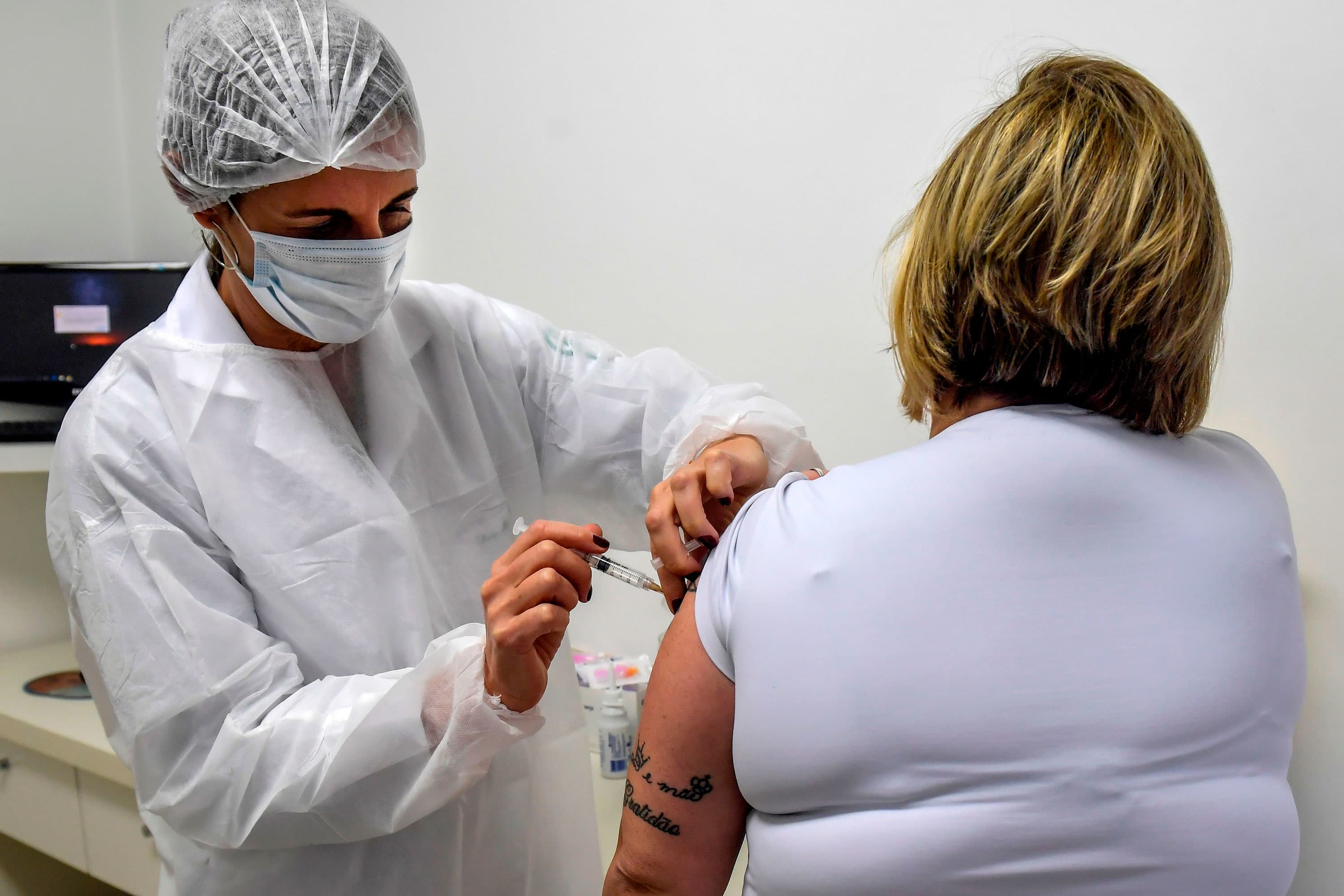A Brazilian doctor voluntarily receives an injection as part of phase 3 trials of a vaccine developed by the University of Oxford and British pharmaceutical company AstraZeneca, in July 2020.
Nelson Almeida | AFP | Getty Images
LONDON — The coronavirus vaccine being developed by the University of Oxford and AstraZeneca has been authorized for emergency use in the U.K., marking another step in the global battle against the pandemic.
The shot is expected to be rolled out next week and would be added to the Pfizer–BioNTech vaccine which has so far been given to 600,000 people in the U.K., according to government statistics.
U.K. government minister Michael Gove said Monday that its approval could accelerate the lifting of strict lockdowns in the country, which effectively canceled Christmas festivities for millions. Cases have surged in London and southern England with significant pressure being placed on hospitals. A new coronavirus variant found in the U.K. is reportedly more transmissible and has led to travel restrictions for people wanting to leave the country.
The Oxford-AstraZeneca vaccine allows the U.K. to significantly ramp up its inoculation program as the government has ordered 100 million doses. It’s also cheaper than others and does not need to be kept at ultra-low temperatures.
AstraZeneca’s vaccine is a viral vector inoculation that is based on a weakened version of a common cold virus that causes infections in chimpanzees. It is designed to prime the immune system to attack the coronavirus, known as SARS-CoV-2, if it later infects the body.
Dr. Richard Horton, editor-in-chief of The Lancet medical journal, told CNBC in December that these advantages meant it could be used around the globe more effectively.
“The Oxford AstraZeneca vaccine is the vaccine right now that is going to be able to immunize the planet more effectively, more rapidly than any other vaccine we have,” Horton said, adding that it was important to think about vaccine immunization on a global scale “because even if we immunize one country, the threat then is you reintroduce the virus from another country that is not protected.”
Confusion around its trial data in November led to some criticism of AstraZeneca. The initial figures suggested that the vaccine can help reduce the spread of Covid-19, as well as prevent illness and death. That study also found it had an effectiveness of 62% for trial participants given two full doses, but 90% for a subgroup given half a dose followed by a full dose.
Chief of the White House’s Operation Warp Speed, Moncef Slaoui, and others in the U.S. have expressed concern over the age group tested, saying the 90% efficacy was only shown for the lowest risk group, which numbered 2,741 people below age 55.
— CNBC’s Sam Meredith contributed to this article.
